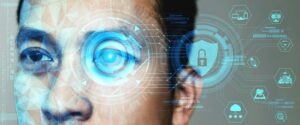
A Brief Introduction…
AI is everywhere and all the signs suggest it’s here to stay. There’s no doubt, if used responsibly and with care, that it can add value and has the potential to enhance and enrich the human experience. However, there is a blind enthusiasm that we need to curtail and manage if we are not to become seduced by AI, losing our creative intelligence and those special artefacts that make us unique.
AI is not a replacement for human relationships, but in so many quarters this is actually what is happening. It’s important that we remember that there is still something precious and beautiful about the nature of human connection, and it is essential that we both savour and sustain this. Unfortunately, the way AI is currently being used, there is a very real danger that humans become increasingly obsolete and the thing that is uniquely authentic about us is cast to one side as unimportant; as we embrace answers to our problems that don’t necessarily provide us with the best solutions.
In the world of therapy, AI is already beginning to offer an alternative to the therapist and in some quarters this is considered to be the future. We believe, based on our research and clinical experience, that this trend should be viewed with some caution and suspicion because the many subtleties and nuances of the therapeutic alliance do not neatly fit into the algorithmic language upon which AI is predicated. Reducing therapy to a merely transactional affair diminishes what is really taking place in the therapeutic space. Also the vulnerability that beats at the heart of the therapeutic relationship cannot be managed wholesomely, effectively and safely if the transpersonal dimensions of therapy are not woven into the fabric of that relationship. This is because the understanding of the human condition and how that relates to a particular individual is not straightforward and easily classified. It would be shortsighted and in some cases dangerous to ignore the other elements that the person brings into the therapeutic space, which have a bearing on their reality, and how best to meet their needs. Context changes everything and every story looks different when viewed through this lens. This is why what it means to be human will always be critical to engineering the best outcomes.
This is not an anti AI message, but an invitation, whilst being curious, to tread more carefully and to keep our creative intelligence and the discerning mind vigilant, so we don’t mindlessly consume what is put in front of us. As this seemingly unstoppable revolution continues to gather momentum, we need to recognise the real concerns and dangers that threaten to swallow the whole world. When we start depending on AI to deal with our emotional reality and experiences, we are at risk of creating false constructs on which we base our choices and decisions. We are already beginning to see the edges being blurred in the fields of counselling, psychotherapy and personal development, with some worrying consequences.
The most concerning of these consequences has been illuminated by what is described as ‘AI hallucinations’. This is when AI generates false, misleading, or imaginary information and presents it as fact, delivering it confidently and persuasively. In other words, it will offer reassurances that no ethical therapist would give, it will fabricate and misquote to support its hypotheses and the points it is making. This is dangerous for someone who might be vulnerable and desperate, giving them false assurances that can mislead and misguide. Due to a lack of conscience, AI does not understand (or care about) the outcomes of such misguidance, which is demonstrated in the video below.
The world of psychology, psychotherapy and talking therapies generally is unearthing more and more cases where clients are being given advice that initially offers them relief and hope, only for that guidance to prove to be incorrect and at times fabricated. In the worst instances, clients are being coached on suicide and/or being emotionally manipulated/abused – see the cases of 16 year old Adam Raine, and 14 year old Sewell Setzer.
In this powerful clip we see how dangerous AI can be and how it will vehemently defend its fabrications – and only under intense scrutiny are its misrepresentations and lies exposed. This is why we need to take the blindfolds off and proceed with caution to protect our mental health and those who are most vulnerable:
